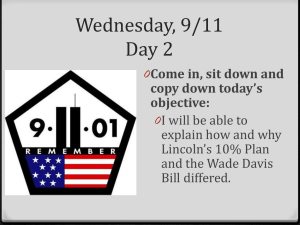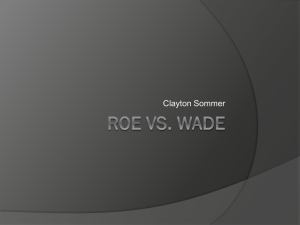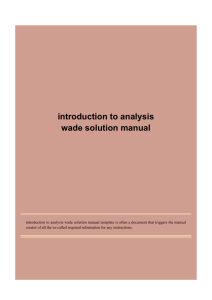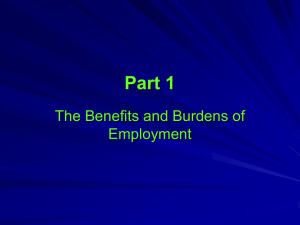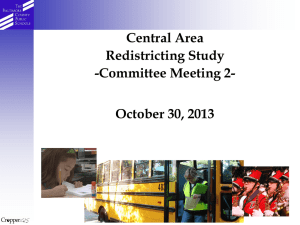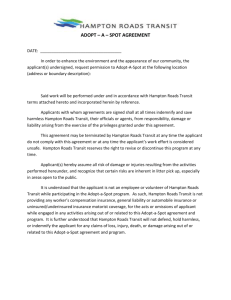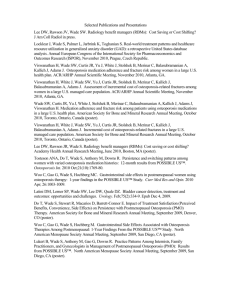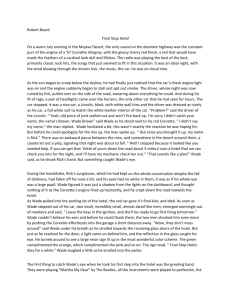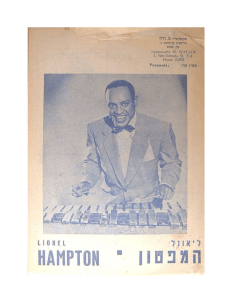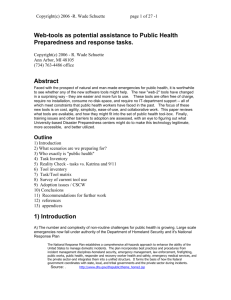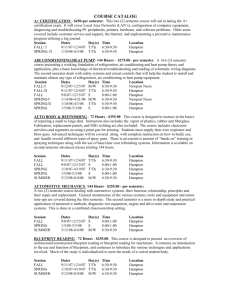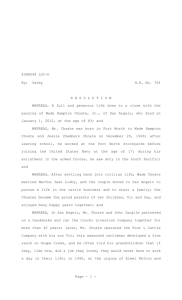Rich in Love
advertisement
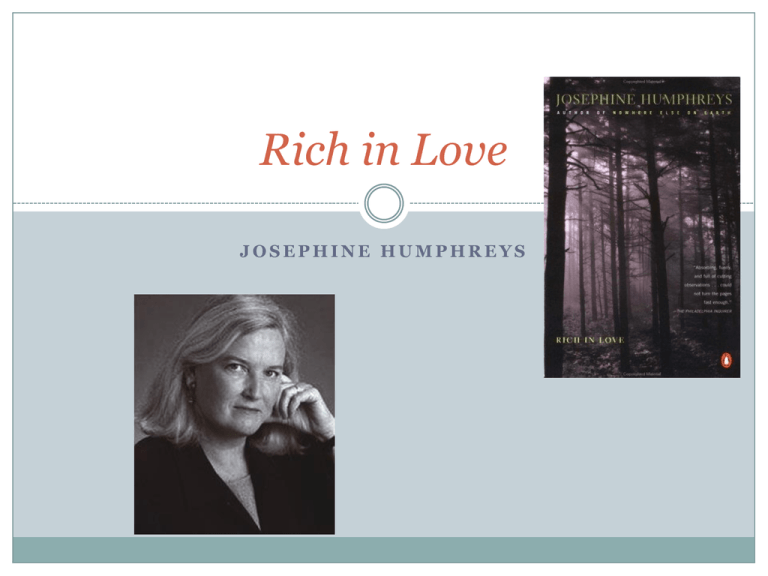
Rich in Love JOSEPHINE HUMPHREYS Osceola’s Grave and Monument Fort Moultrie postcard, available in the gift shop or online, $5 John C. Calhoun Monument – Marion Square, Charleston, SC I also felt strongly that history was a category comprising not only famous men of bygone eras, but me, yesterday. Rich in Love John C. Calhoun was a U.S. Senator and served as Vice President under two presidents. Wade Hampton Hotel – Columbia, SC Wade Hampton Hotel – Columbia, SC (Left) View from the Capitol today; (above) Buildings that replaced the Wade Hampton Hotel Wade Hampton Wade Hampton III, for whom the hotel was named, led a Confederate cavalry during the Civil War. Later, he served as governor of South Carolina and a member of the U.S. Senate. He was the son of Wade Hampton II, a.k.a. “Colonel Wade Hampton,” one of the wealthiest planters in the antebellum South and owner of the most slaves. Wade Hampton was a lieutenant colonel during the American War for Independence. Postsouthern Sense of Place That region we have known and narrated as “the South” may no longer be primarily agrarian—it may in fact have ceased to exist as a distinctive economicgeographical entity—but the social practice and production of place continues. Whether one likes it or not, capitalist land speculation and real-estate development play a major role in the reproduction— the creative destruction—of traditional “southern” loci. Martyn Bone, The Postsouthern Sense of Place in Contemporary Fiction Postsouthern Feminism To Woman, lovely woman of the Southland, as pure and chaste as this sparkling water, as cold as this gleaming ice, we lift this cup, and we pledge our hearts and our lives to the protection of her virtue and chastity. – a traditional toast documented by Carl Carmer in Stars Fell on Alabama (1934) Illustration from Harper’s Weekly (Sept. 7, 1861) Postsouthern Feminism The cult of Southern womanhood endowed [the white southern woman] with at least five totally different images and asked her to be good enough to adopt all of them. She is required to be frigid, passionate, sweet, bitchy, and scatterbrained—all at the same time. Her problems spring from the fact that she succeeds. Antebellum southern civilization was built upon the white woman’s untouchable image. Florence King, “Would Youall Be Good Enough to Excuse Me While I Have an Identity Crisis?” or: The Cult of Southern Womanhood Postsouthern Feminism “I was taught that there is no halfway ground that a woman is either a lady or not” – Caroline Compson in William Faulkner’s The Sound and the Fury “The Southern woman’s problem with the virtuous image has been intensified by constant articulation . . . , so it is not surprising that she behaves like Scarlett O’Hara for a month and then puts in a week as Sweet Melanie Wilkes.” – Florence King, “Would Youall Excuse Me. . .” Relevant Scholarship Anne Goodwyn Jones, Tomorrow Is Another Day (1981) Carol S. Manning, ed., The Female Tradition in Southern Literature (1994) Michael Kreyling, Inventing Southern Literature (1998)—chapter on the “Quentin thesis” includes reading of Rich in Love Patricia Yaeger, Dirt and Desire: Reconstructing Southern Women’s Writing, 1930-1990 (2000)

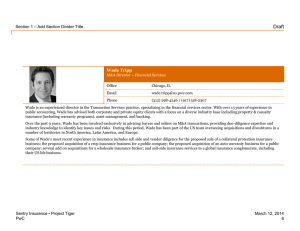

![Arrival of Wade Keiffer[1]](http://s3.studylib.net/store/data/008164778_1-51788b3e4d580af943e609fb94f63938-300x300.png)

